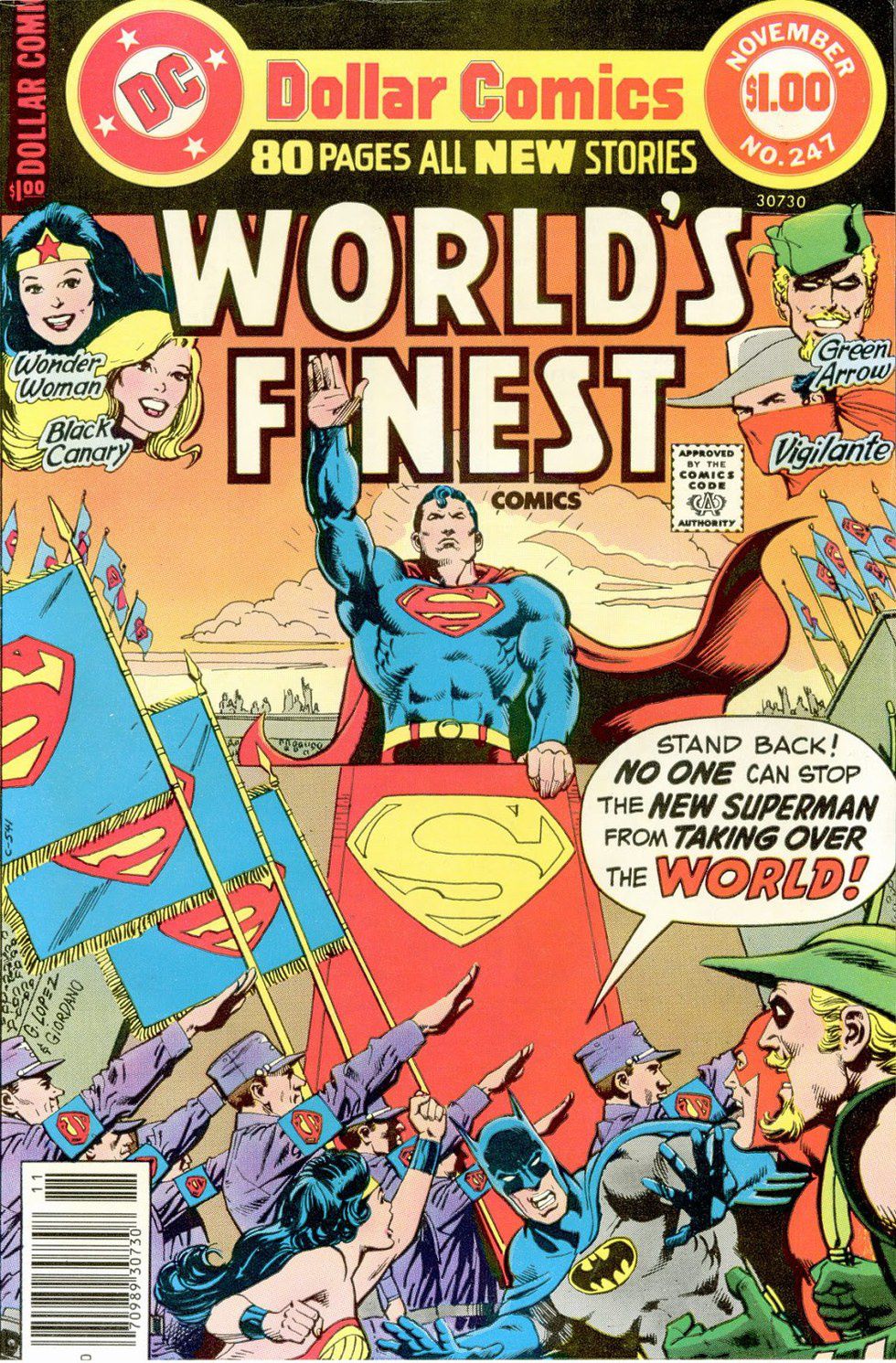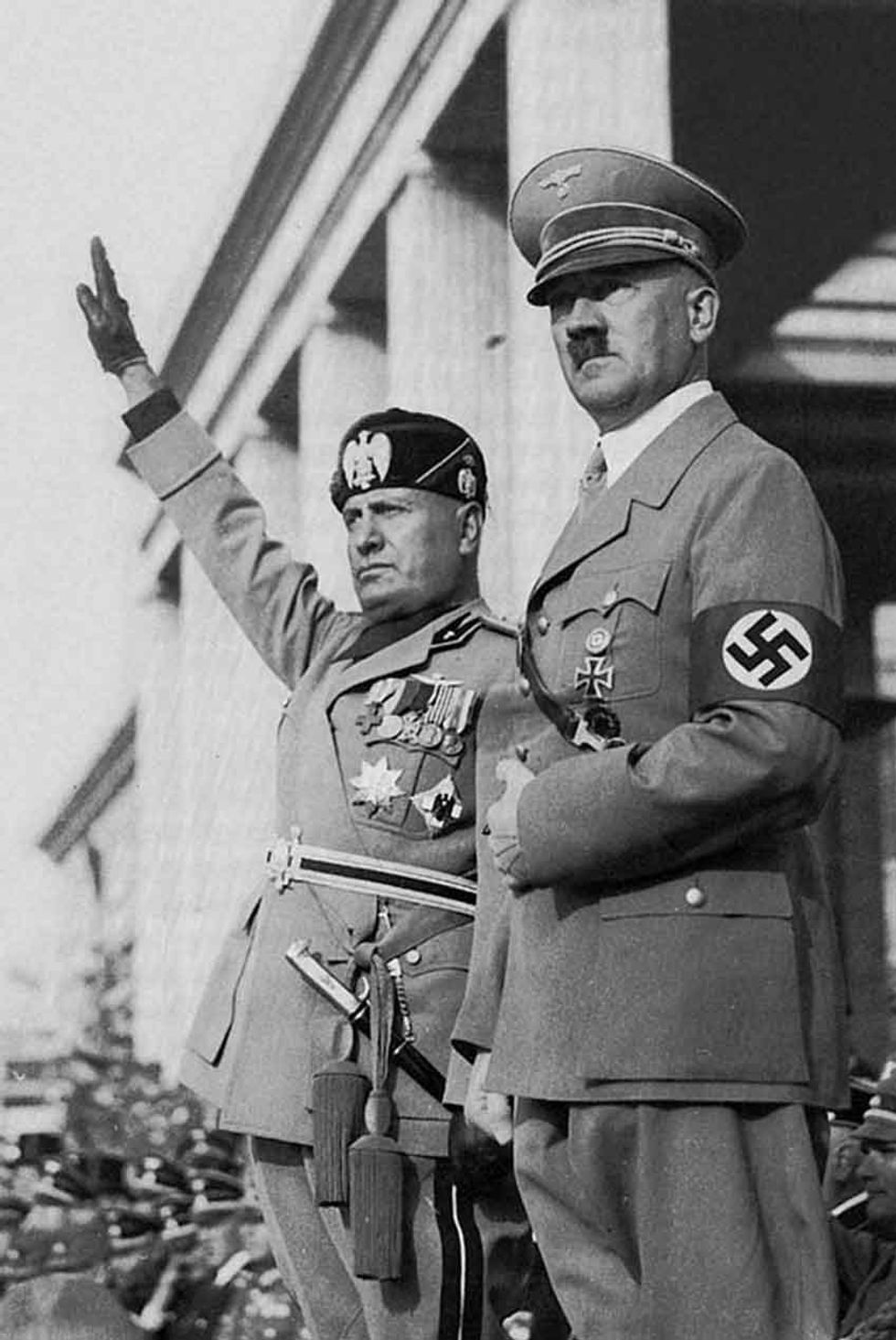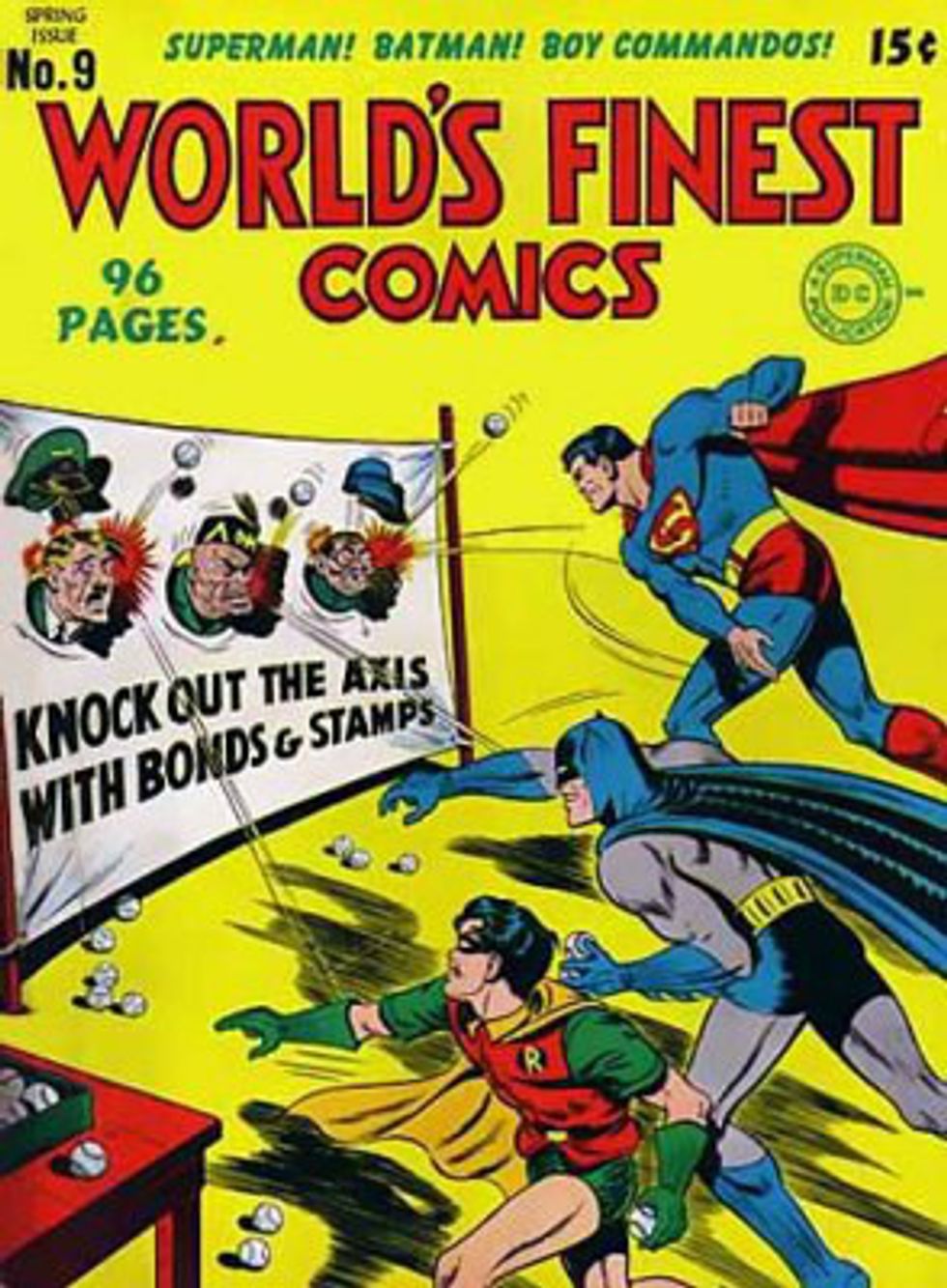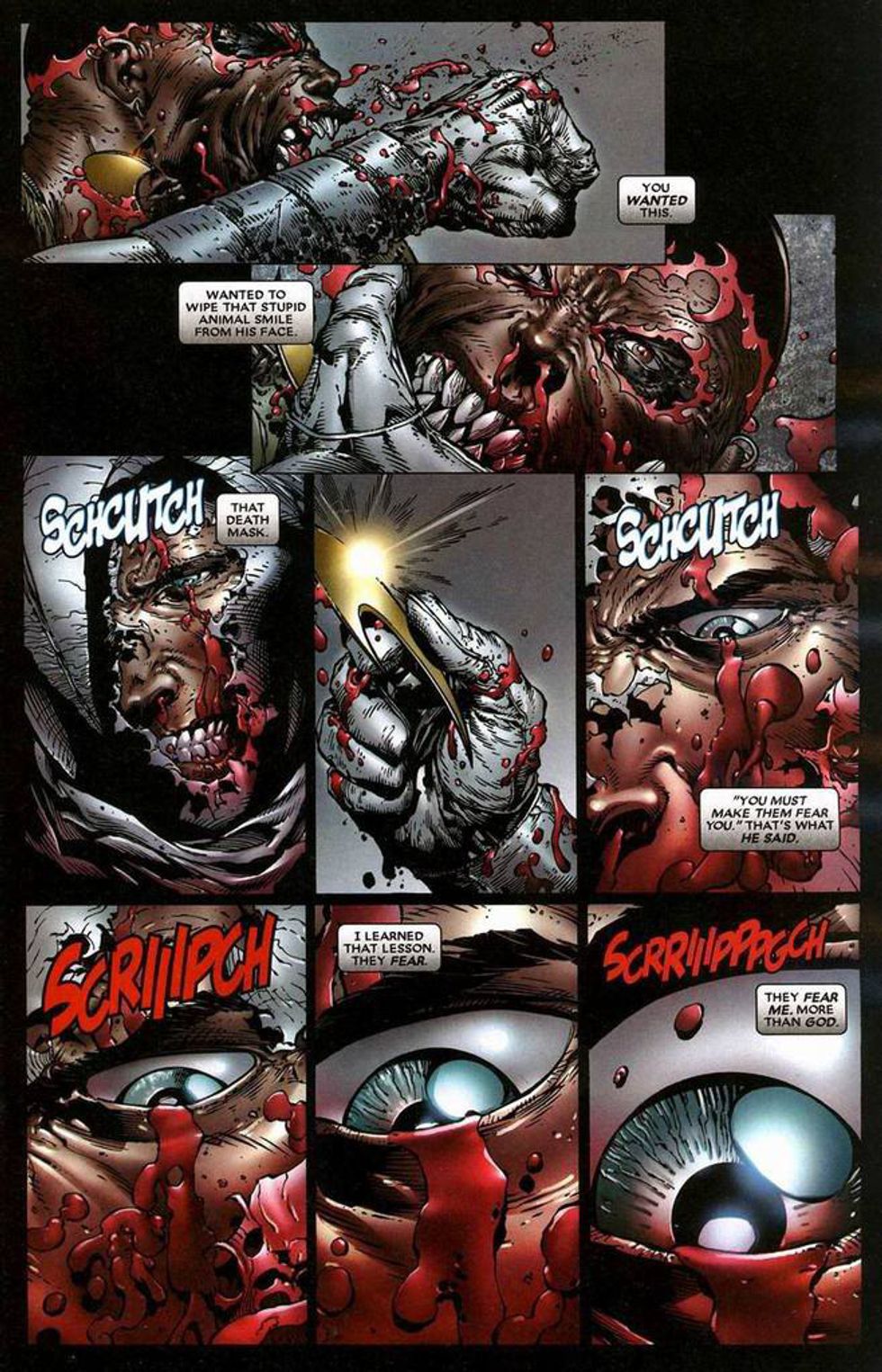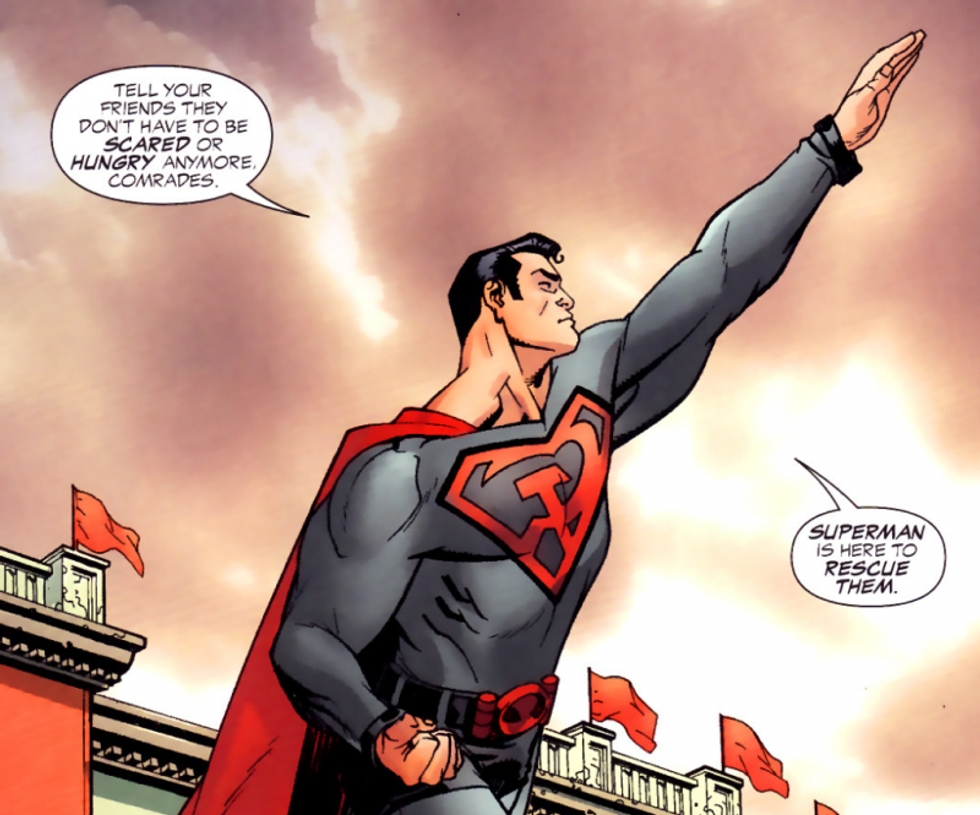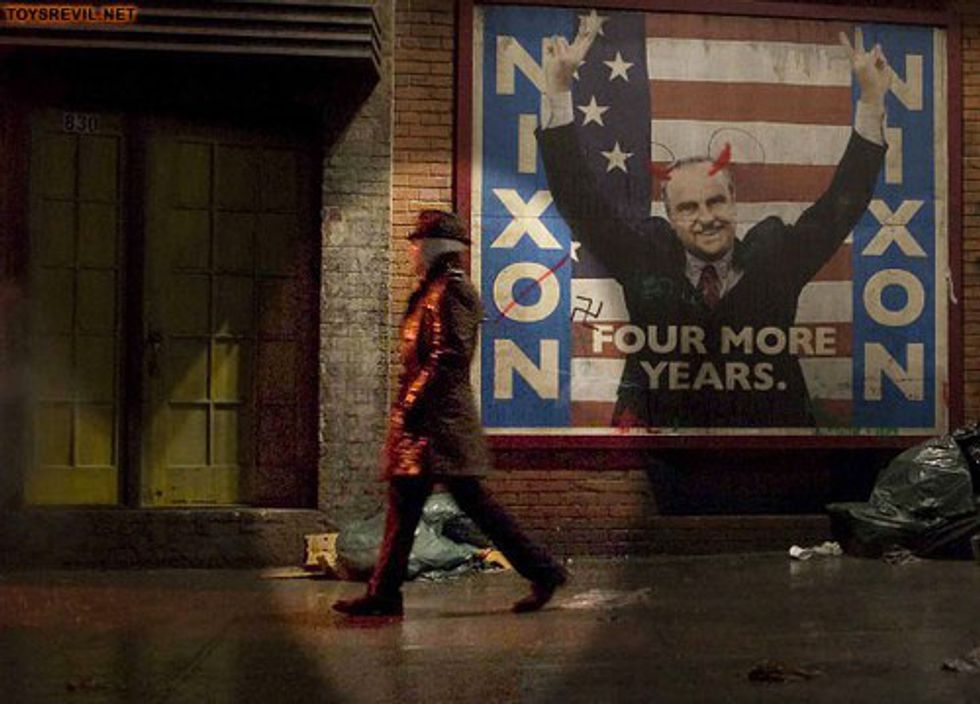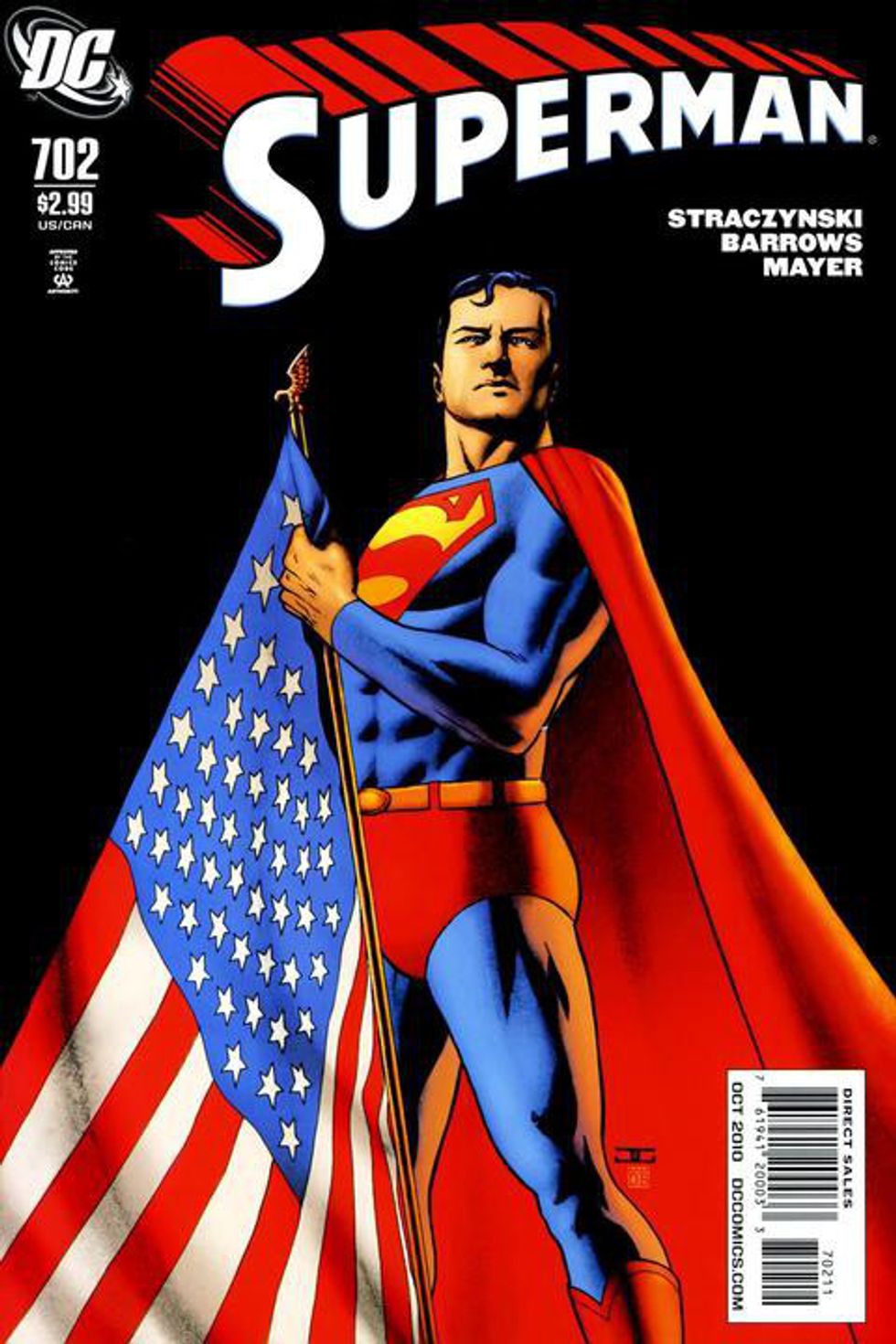On Wednesday, November 16th, 2016, NPR published an online article entitled "Superheroes And The F-Word" by Glen Weldon. I love listening and reading anything by NPR, and I find they are one of, if not the most, best all around news and analysis organizations around. So I was very excited to take the time to read this piece, I mean, it is from NPR and has to do with Superheroes and comics? Count me in! About fifteen minutes later, however, I was a little perplexed by what I read. It did not ruin my day, or make me upset, it just left me scratching my head. Weldon goes into great detail explaining and comparing how American comics relate to fascism, that is, the far right political ideology of ultra-nationalism and totalitarianism, that is often lumped with racism. So sat down, pulled up various articles by various authors and read about what they say. Turns out, if you type 'Fascist Superheroes' into a search engine, you will get a number of responses.
It is important to understand what Fascism is, how it came about, and why. Most think Hitler and the Nazi Party of Post World War One Germany, when, in fact, it originates from Italy. During World War One, Mussolini, the future dictator of Italy, and many others felt a deep calling to nationalism as war raged in Europe. Following the 1917 Bolshevik Revolution, the birth of Communism in Russia, and the involved of the United States in the War, countries like Italy and Germany were left wondering, "what about us?" They were left paying for the war, gave up conquered lands, were drastically punished by the Treaty of Versailles. Mussolini, in particular, felt compelled to bring about the 'Third Rome' and throw around the superiority of the Mediterranean Aryan/White Race, particularly in Africa. Hitler, of course, adopted his sentiments, and formed the National Socialist Party, the Nazis. He also, thanks to years of protesting, riots, public opinion shift, became the chancellor of Germany. I am a history buff, and can go on all day about this, but it just continue to beg the question, "What does this have to do with comics?"
I mean, Superman, Wonder Woman, and Captain American FIGHT the Nazi's, so that makes them anti-fascist, yes? According to these articles, yes. In Weldon's piece, he says:
"...Superman, Batman and other costumed heroes found themselves conscripted alongside Captain America. Not to fight the Axis themselves, mind you, but to root out stateside saboteurs and urge readers to plant Victory gardens and buy war bonds."
In other words, Superman and Batman preached nationalistic ideology, such as buying war bonds, to readers. They did not physically fight the Nazi's, like Captain American so famously did on his debut cover, they rooted out Un-American 'saboteurs,' and held messages of extreme patriotism. Think "truth, justice, and the American Way," Superman's Motto. Mussolini and Hitler's message of Ultra-nationalist is unquestionable, and sounds similar to the mantra of the Man of Steel. The Nazi's committed witch hunts for Jewish and Communist German's, claiming they were the problem and not 'true' Germans.
Another key point many authors makes supporting these fascist tendencies of comics is found in the issue of race. Like we have previously discussed, comics have a track with racism. They very clearly showed racist images of the Japanese, featured racist dialogue, lacked a Black character until 1966, and have a history of white-washing, but they also hosted metaphorical figures of desegregation, most popularity with the X-men. Yet, mainly focusing on Superman, these authors claim he represents the 'perfect race.' Superman, born from Krypton, is stronger, faster, and smarter than any other living human. He can fly, leap tall building in a single bound, and has the physique of a Michaelangelo statue times a thousand. He was perfect. That is, until Dr. Fredrick Wertham, known for his advocation against comics called the industry out about it. Again, Weldon states:
"Dr. Fredric Wertham, who in his 1954 anti-comics screed Seduction of the Innocent... dubbed [Superman] an "un-American fascist" symbol. It hit a nerve. Wertham's crusade changed the industry completely...Suddenly Superman's powers didn't derive from his "super-race" genetics, but from science: the rays of Earth's yellow sun..."
A fair claim to make, this does paint a ugly picture of Superman. Perhaps, he is what Wertham claims him to be. The Nazi's infamously claimed there was a 'master race,' and maybe Superman could represent that, Ironic seeing as he was created by two Jewish men.
Another trend popular among these articles is the use of violence by heroes. Fascism is assumed, rightfully so, to approve violence. Fascist famously advocated for total war, and saw brute force as the answer to most, if not all, problems. Look at the March on Rome or the Beer Hall Putsch for example. Obviously, comics are known for 'fighting crime.' Its what they do. Superman , being the almost god-like figure he is once fought regular men. How fair is that? Recently, in movies and t.v. shows alike, superheroes commit intense acts of violence, sometimes even killing. The Punisher is known for killing, like wise, Superman has done it too. Daredevil, Batman, Luke Cage, the more 'human like' character, commit vigilant justice, and often devastate their opponents. Maybe these comics are not as neutral as we, or at least I, think they are.
Something about it does not sit well with me. Weldon ends by saying that, while comics have changed for the better, and God-like superheroes like Superman are nearly non-existent, "...you will still be able to discern the low but steady drumbeat of fascism..." And, I can not sit here and say that, the correlation is not there, because it is. But correlation does not mean causation. Sure, these claims are strong, and could be very true for that golden age of comics, but does not seem to hold up past that much.
In his article entitled "Stop Calling Superheroes 'Fascist' " Chris Yogerst says:
"Superheroes do say something about the real world, but it’s something pretty uncontroversial: We want to see good triumph over evil, and “good” in this case means more than just defeating the bad guy—it means handling power responsibly."
Famously, Spider-Man lives off of this mantra. "With great power comes great responsibility." Perhaps, excluding Superman, heroes are just more human beings, through into a world of super abilities, that manage to use them for the 'greater good.' Even in the case of Superman, who could, as seen in Red Son,literally rule the world himself, he just thrives for one thing, "...[ending] all the wars and famines! I only wanted the best for everyone..." Yogerst continues, and lays out that, creators are not making this characters and stories for a power-complex, rather:
"superhero tales are full of subplots about how heroes limit their own power: hibernating once the big bad guy has been defeated, wearing disguises to live ordinary lives, choosing not to give into the temptation to ally with the villain or use their powers for profit or even civilizational progress... They were writing out of a fantasy that a truly good people who find themselves with power might use that power only for good—and only in the face of extreme evil."
Likewise, Yogerest does not deny the claims of Weldon, that sometimes fascism is an obviously plot point, as in the case of Watchmen and Kingdom Come. Unlike Weldon, however, Yogerest says these serve as warning to the notion:
"When superheroes do appear to flirt with fascism, it's as part of a subversions of the genre, as with Alan Moore's gritty, dystopian Watchmen. Similarly, Frank Miller's The Dark Knight Returns re-imagined Superman as a government lackey who gets in Batman's way. Both graphic novels comment on the dangers posed by superheroes with less-clear moral orientations..."
So, what are left to conclude? Personally, and I can only speak for myself, I do not agree with Weldon. Yes, there is a strong correlation between fascism, and the 'perfect race' idea from those Golden Age comics of Superman, Batman, and others, but they die off. In the Silver Age, as Spider-Man and the X-Men grow in popularity, and talk about race, controlling their power, emphasizing the goal of heroes acting selflessly for others because that is the right thing to do, and do all that while being persecuted and not seeing a reward in the traditional sense, is noble. Yes, comics might have maintained a left of 'whitewashing' and lacked diversity, but today that absent. Lets list some examples here, Mile Morales, Kamala Khan, Sam Wilson as Captain America, Jane Foster, and the upcoming America Chavez, and that is just scratching the surface! Superheroes and comics are about more than beating up the bad guys. They are about beating up the bad guys, because, well, they are bad, right? Heroes, in all their forms, across all races, genders, sexual orientations, do what they do because, "everyone is entitled to life, liberty, and the pursuit of happiness," and when the big bad supervillian comes along to take over the world, and press REAL fascist ideas on the innocent, they step in and stop it.


